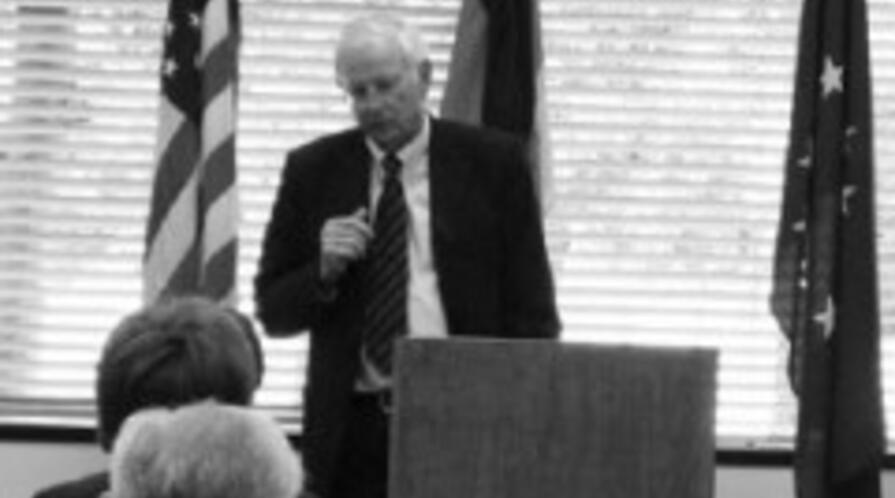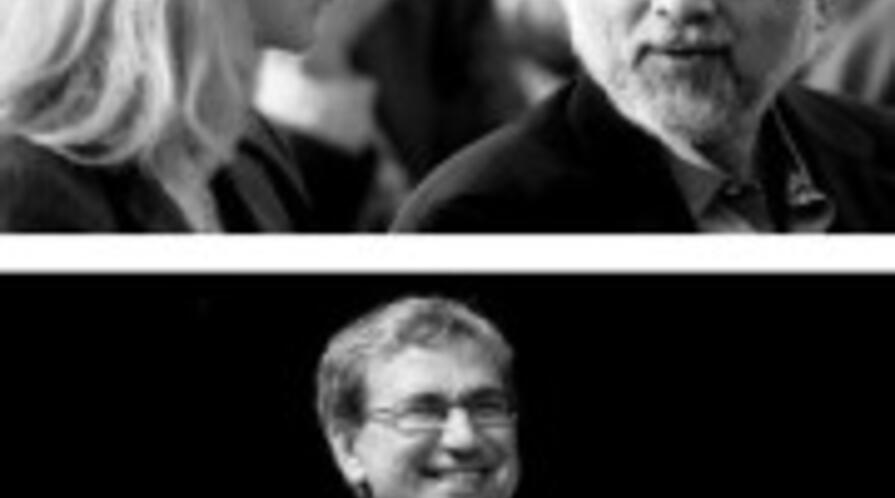During 2007–2008 the forum on contemporary Europe launched the second phase of its
comprehensive, multi-year analysis of Europe and the
EU’s global relations in the context of an expanding
European Union. What began last year with analysis
of political membership this year added a focus on
implications of expanded membership in key areas,
including social integration of immigrant communities.
Forum researchers and invited scholars addressed
questions central to understanding the process of
European integration and areas of concern it raises.
During the fall of 2007, in seminars, keynote speeches,
and international conferences, Forum researchers
addressed such questions as:
- What explains the electoral results of populist parties,
with their nationalist and anti-immigrant platforms,
gaining where they had previously remained marginal
(Switzerland) and declining where they had regularly
held influence (France)?
- How should OSCE member states and election
monitors respond to the denial of visas for monitoring
Russia’s parliamentary elections?
- What is inflaming renewed outbursts of violence in
multiple urban centers? Do the riots reveal urban youth
segregated by race? Compelled by fundamentalism? Or
disaffected with the promised EU economic mobility?
- Do instances of violence against ethnicminorities reveal
a return to a pre-modern xenophobia or an old behavior
used to express a new rejection of EU integration?
- Will laws protecting historical memory, such as the
Spanish act to rebury victims of Fascist forces and
German and Austrian laws criminalizing holocaust
denial, resolve or inflame neo-fascist parties?
- What stance can the EU take in regard to Turkey’s
article 301 criminalizing historical comments as
denigrating the heritage of the Turkish state?
- Does EU membership mollify or magnify cultural
tensions behind separatist movements in cases such
as Flanders, Catalonia, Corsica, Basque homelands,
and, potentially, Kurdish regions of Turkey?
Highlights of the following fall 2007 events illustrate
forum research on these vital questions.
INTERNATIONAL CONVERENCE ON ETHNICITY IN TODAY'S EUROPE
The forum joined with the Stanford Humanities Center
to organize an international conference on “Ethnicity in
Today’s Europe.” Amir Eshel, director of the forum, opened
the conference with remarks on the growth of immigrant
communities, and their increasingly widespread origins,
as well as implications for security and integration. The
Stanford faculty organizing committee identified and
attracted the top scholars on the subject from both
sides of the Atlantic, including professors Saskia Sassen
(sociology, Columbia), Alec Hargreaves (French, Florida
State), Leslie Adelson (German studies, Cornell), Kader
Konuk (Germanic languages and literatures, Michigan),
Rogers Brubaker, (sociology, UCLA), Carole Fink (history,
Ohio State), Salvador Cardus Ros (sociology, Universitat
Autònoma de Barcelona), and Bassam Tibi (international
relations, University of Gottingen). Panels were moderated
by Stanford faculty: Helen Stacy (law school), J.P. Daughton
(history), Joshua Cohen (political science, philosophy,
FSI), Pavle Levi (art), and Josef Joffe (FSI).
Panelists and a large, engaged public audience
convened for a screening of the award-winning film
Fortress Europe and a discussion with the film-maker
�Zelimir �Zilnik. The conference-related Presidential Lecture
by Partha Chatterjee (political science, Centre for Studies
in Social Sciences, Calcutta; anthropology, Columbia),
brought a capacity audience to open the conference
with a study of the historical foundations of inter-ethnic
relations in post-colonial Europe. The forum’s assistant
director, Roland Hsu, has invited participants to contribute
to a volume he will edit and introduce on Ethnicity in
Today’s Europe to be published in 2008.
FSI INTERNATIONAL CONFERNCE: FCE PANEL ON EUROPE - A CHANGING CONTINENT?
The forum invited three leading figures on EU policy to
speak on the FCE panel at the FSI international conference.
Engaging the theme of power and prosperity, Wolfgang
Münchau, writer for the Financial Times; Monica Macovei,
former justice minister, Romania; and Mark Leonard,
executive director of the European Council on Foreign
Relations and Open Society [Soros] Foundation, spoke
on the challenge of interpreting recent EU electoral,
juridical, economic, and social reforms. This panel
examined economic growth in the newest member
states in the East, the challenge of political and social
integration in the West, and countervailing pressures
for consolidating post-communist governments and
transparency reforms. The European Union’s expansion
to 27 member nations promises a vast Euro-zone and
a stronger trans-Atlantic partner. Questions from the
audience engaged the panel on what level of confidence
should be placed in this promise. The dilemma over
Kosovo, pending Serbian EU accession, the expansion
eastward to include societies bordering former Soviet
republics, the question of Turkey’s membership, as
well as tightening labor markets and welfare budgets
in Western Europe, led the panel and audience to
anticipate with cautious optimism the potency of EU
integration and foreign policy initiatives.
AN EVENING WITH ORHAN PAMUK
Forum-affiliated faculty brought such questions to a
special lunch with Nobel Laureate Orhan Pamuk; and
then joined an overflow audience event at Memorial
Auditorium titled An Evening with Orhan Pamuk.
The forum co-sponsored the visit by Pamuk, along
with Mediterranean Studies, the Office of the Provost,
and the FSI S.T. Lee lecture series.
Research and public programs on these subjects will
continue at the forum in the following selected events:
INTERNATIONAL CONFERENCE ON THE TRAFFICKING OF WOMEN POST-COMMUNIST EUROPE
Designed by forum acting director Katherine Jolluck,
this international conference will examine the trafficking
of women for sexual slavery, a trade that has rapidly
expanded since the collapse of communism in Eastern
Europe and the USSR. The conference will bring together
scholars, policy experts, and NGO analysts to discuss
the issue from economic, legal, and human rights
perspectives. Special attention will be devoted to
strategies to combat the problem and address the
needs of victimized females. Madeline Rees, head of
Women’s Rights and Gender Unit, U.N. Office of the
High Commissioner for Human Rights, former U.N.
high commissioner for human rights in Bosnia, has
been invited to give the keynote speech.
JAN ELIASSON: THE FUTURE OF DARFUR
The forum has invited Jan Eliasson, former Swedish
foreign minister and current U.N. special envoy to
Darfur, to speak on his work on behalf of the international
community and the EU-African Union mission
to bring peace and humanitarian relief to Darfur and
its neighboring states.
KOSOVO: PROSPECTS FOLLOWING THE DECEMBER 2007 U.N. STUTS TALKS
The forum has invited multiple affiliated centers
including the Center for Russian, Eastern European,
and Eurasian Studies, the Department of History,
and the Stanford Law School to co-sponsor a panel
discussion following the December 2007 U.N.-EU
deadline for status talks. Elez Biberaj, director of the
Eurasia division at VOA, and Obrad Kesic, formerly at
IREX and also former advisor to Yugoslav President
Panic, will speak on prospects for the status of Kosovo
and the efficacy of potential EU membership to mediate
Kosovo-Serbian relations.





